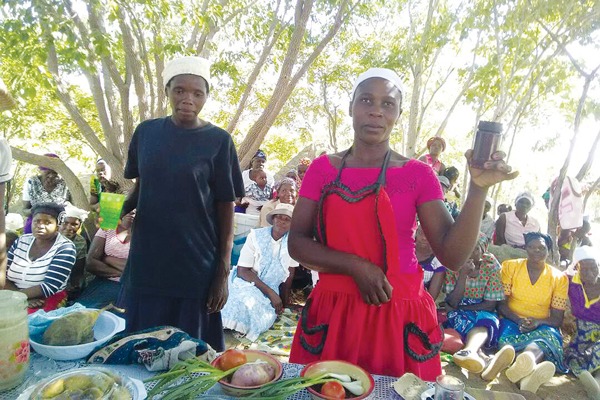
A RAGTAG group of men and women moves along the river bank, picking hute (water berries) that grow lavishly by the riverside.
BY JAIROS SAUNYAMA
With their plastic bags full of the wild fruit, one would be tempted to believe they just want to enjoy the fruit, a pastime usually associated with young children on their way to school.
However, this is not the case with these villagers, who have seen a way of making profit from the fruit that grows naturally by using it to produce fruit jam.
“We make jam out of these wild fruits and if you taste it, there is no difference with the jam you find on supermarket shelves. However, the jam made out of hute tastes better and has its unique flavour,” Rudo Mabani (30), one of the women in the project, who lives in Mutedza Village, Mudzi South constituency, said.
When NewsDay Weekender visited the Mapombo area of Mudzi recently, the villagers involved in the value-addition project displayed products that included the jam, flitters and traditional calabashes.
According to Mabani, they gather the ripe fruit, mix it with water before ramming them until they separate the seeds from the shells.
“After separation, we then mix four cups of hute juice and four cups of sugar. We then add jolly juice as flavour and stir vigorously at low temperatures. That is how we make the jam,” she said.
- Chamisa under fire over US$120K donation
- Mavhunga puts DeMbare into Chibuku quarterfinals
- Pension funds bet on Cabora Bassa oilfields
- Councils defy govt fire tender directive
Keep Reading
However, despite their capabilities, the villagers pray that one day they will have a ready market so that they capitalise on their innovation and enjoy the fruits of their hard work. Currently, they are selling the jam locally and in nearby villages at $2 per bottle.
Givemore Mutedza, one of the senior members of the group, said they are looking for citric acid to add as preservative to elongate the jam’s shelf life.
“Currently, our jam can be consumed within one week because we do not have citric acid so that it won’t go bad quickly. We do not have money to buy it and here in Mudzi, we cannot get it unless one travels to Harare,” he said. The villagers became involved in value-addition projects following a visit by a non-governmental organisation, CADS, whose officials taught them on how to earn money using locally available raw materials.
A workshop was held for the villagers and they were taught how to make the jam and fritters from cow peas, among other crops.
The flitters are made of flour, cowpeas, onions and salt.
The group also makes refreshing traditional fermented drink (maheu) using mawuyu (baobab fruit), among other things.
Village head David Chimhango said the project has sustained villagers and appealed to relevant authorities to assist them grow their business.
“We are the kings and queens of value-addition in this country, but we need recognition from relevant organisations so that we grow this business. The best jam is being derived from hute and I am confident that if we are capacitated, we will compete with big companies,” he said.
“We sell the products in the community, but our aim is to put our products on the shelves of big supermarkets.
Because people are now selling something to earn few dollars for themselves, domestic violence cases are now low in this area. Poverty escalates fights in homes.”
The villages that are consuming the products include Mapombo, Mutedza and Spanera, among others while the gold-rich area of Makaha is a near market for the villagers in the project. The army-led Operation Restore Legacy brought a new dispensation that is thriving to improve the economy by all means as well as improving the people’s lives.
It is such projects, like the value-addition drive in Mudzi, that will transform the lives of people if capital is injected into it.











